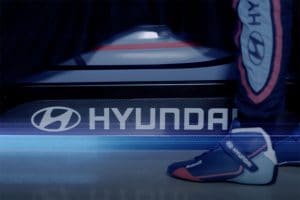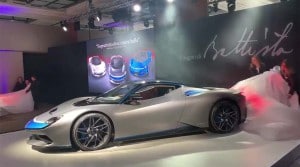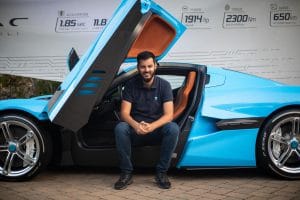Just days after publicly unveiling the Taycan, its first-ever battery sports car, Porsche said Friday it will increase its stake in Rimac Automobili to 15.5%.
Rimac is a Croatian-based company best known for battery-electric supercars like the C_Two. But it has been forming a series of alliances with established automakers as diverse as Hyundai and Porsche, the latter maker acquiring an initial, 10% stake in Rimac in June 2018.
“It quickly became clear to us that Porsche and Rimac could learn a lot from each other,” said Lutz Meschke, Deputy Chairman of the Executive Board and Chief Financial Officer of Porsche AG. “We are convinced of (company founder) Mate Rimac and his company, so now we have increased our stake and are expanding our cooperation in battery technology.”

Porsche finally took the wraps off its new 2020 Taycan on September 4, four years after first revealing the all-electric Mission E concept.
Exactly what the new investment will yield remains to be seen. Porsche has made it clear that it will become a serious player in battery-electric technology. Future products will fall into three “pillars,” Stefan Weckbach, the head of the Taycan program, told TheDetroitBureau.com following the Canadian debut of the battery-car this past week. The first covers conventional, gas-powered vehicles, the second various forms of hybrids. The third includes all-electric models. A Taycan variant and a battery-electric version of the Macan SUV already have been confirmed.
Future models, starting with the Taycan Cross Turismo crossover, will use a unique chassis developed in a partnership between Porsche and Audi, but Rimac is expected to play a key role in development elements of the propulsion systems that will be used by the two brands – and possibly other members of the greater Volkswagen Group, such as Bentley and Lamborghini. The Italian automaker will unveil its first hybrid model at the Frankfurt Motor Show next week and will push even further into electrification going forward.

Hyundai plans to reveal an electric race car at the Frankfurt Motor Show. It will rely on a alliance with Rimac to expand its own electrification program.
In a joint statement, Porsche and Rimac said their expanded investment “will contribute to the rapid pace of development at Rimac, which includes the significant scaling-up of its high-performance component production.”
But it also noted that the unspecified cash inflow will allow Rimac “to support a greater range and volume of partners with production ranging from advanced powertrains and drivetrains, to industry-leading infotainment and connectivity systems.
Founded in 2009 by Mate Rimac, and headquartered in Sveta Nedelj, not far from the Croatian capital of Zagreb, Rimac has produced a series of low-volume supercars, including the newest entry, the C_2, which is scheduled for delivery starting next year. But it has also formed a series of alliances with not only Porsche but Hyundai, Jaguar, Seat, Aston Martin, as well as Pininfarina — for whom it developed the drivetrain for the new Battista electric supercar. Rimac is even working in the boating industry, developing a new, high-speed yacht.
Besides Porsche, its most extensive relationship is with Hyundai which, this past May, announced it would invest $50 million in the Croatian company.

The Pinininfarina Battista made its debut in Geneva this year and uses a drivetrain developed by Rimac.
“Rimac is an innovative company with outstanding capabilities in high-performance electric vehicles,” Euisun Chung, Executive Vice Chairman of Hyundai Motor Group, said at the time. “Its startup roots and abundant experience collaborating with automakers combined with technological prowess makes Rimac the ideal partner for us. We look forward to collaborating with Rimac on our road to Clean Mobility.”
As with Porsche, the full extent of the ties between Rimac and Hyundai have not been disclosed. Further information could be released next week at the Frankfurt Motor Show, however. That’s where the Korean carmaker will reveal its new EV race car. Though primarily developed by Hyundai’s European motorsports development team, Rimac was rumored to have played at least some roll in the racer’s development.
“It was one of the most important milestones in our history to win Porsche as a partner,” Rimac Founder and CEO, Mate Rimac said in the joint statement. “We have many ideas that we want to action together in the future. The key is to create a win-win situation for both partners and to add value to our end customers by developing exciting electrified models.”

